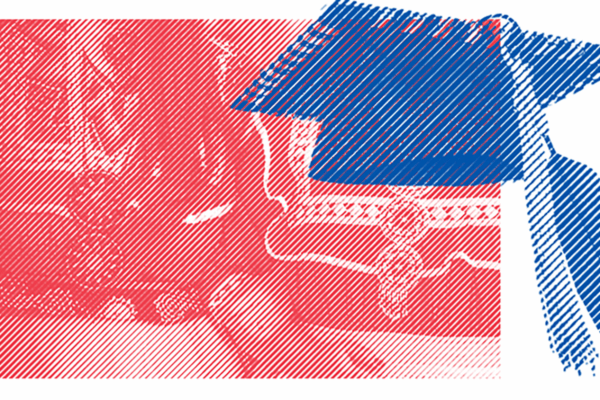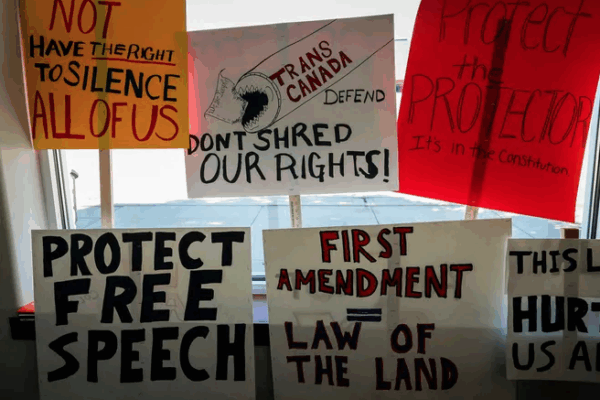Indigenous Justice
The American Civil Liberties of Wyoming seeks to uplift Indigenous people, communities and tribes through community-focused and integrated legal and advocacy work. We aim to support tribal communities -- and follow their lead -- as they work to uphold their sovereignty, dignity, and autonomy.
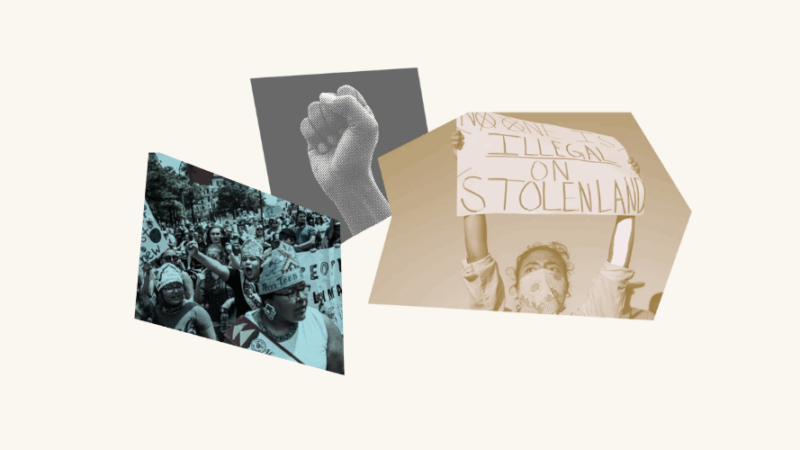
The American Civil Liberties of Wyoming seeks to uplift Indigenous people, communities, and tribes through community-focused and integrated legal and advocacy work. We aim to support tribal communities – and follow their lead – as they work to uphold their sovereignty, dignity, and autonomy. We work to dismantle colonial systems of oppression that are found in all of our institutions including schools and prisons.
Today, Wyoming is home to two federally recognized tribes – the Eastern Shoshone and Northern Arapaho. Though these tribes are separate and distinct, they currently govern only one reservation territory in the state – the Wind River Reservation. The 2.3-million-acre reservation, which encompasses mountains, sandhills and sage flats, is among the 10 largest reservations by land mass in the United States.
State and federal governments fail to adequately address how the legacy of colonization continues to harm Indigenous people. Since the founding of the United States, Indigenous people have faced systemic injustice and inequality in all aspects of our society.
The ACLU of Wyoming recognizes that Indigenous Justice is not racial justice alone, but a complexity of political and sovereignty issues.
Our Indigenous Justice priorities are informed by conversations with Indigenous leaders and community members across the state, with equity in all aspects of life as our top priority.
Free speech and protest
Quashing free speech rights, especially for minorities or other marginalized people, is all too common. We work to protect the free speech of Indigenous and other communities. The voices of the people must be heard in a meaningful way, and taking that opportunity away from anyone is a subversion of our entire democratic process.
Voting rights
Indigenous people must have political equity and fair access to the ballot box. However, the reality is that far too many people, especially those living in rural parts of Indian reservations, face voter suppression or disenfranchisement.
Treaty Rights
Treaties between Indian tribes and the United States government are contracts between two sovereign nations. Per the U.S. Constitution, treaties are the law of the land. Even with an obligation to uphold all treaties, the federal government’s track record is dismal. We support tribes in their efforts to hold the U.S. government accountable.
The Latest
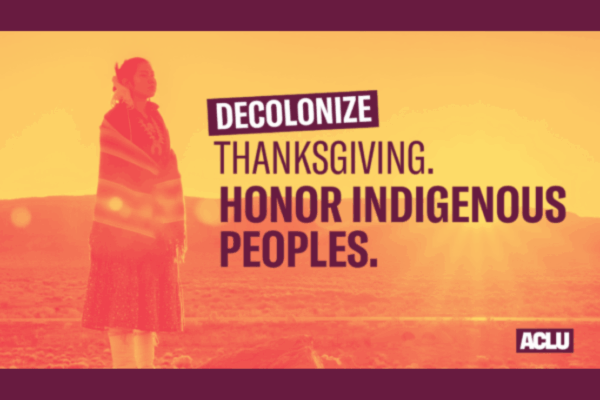
Decolonize Thanksgiving by Cultivating Authentic and Respectful Holiday Traditions
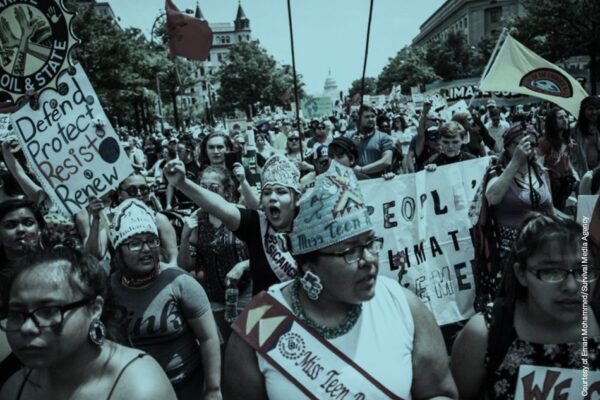
This Month, We Honor Great Native American Leaders – Not That Other Guy
Stay Informed
Sign up to be the first to hear about how to take action.
By completing this form, I agree to receive occasional emails per the terms of the ACLU’s privacy statement.
By completing this form, I agree to receive occasional emails per the terms of the ACLU’s privacy statement.

